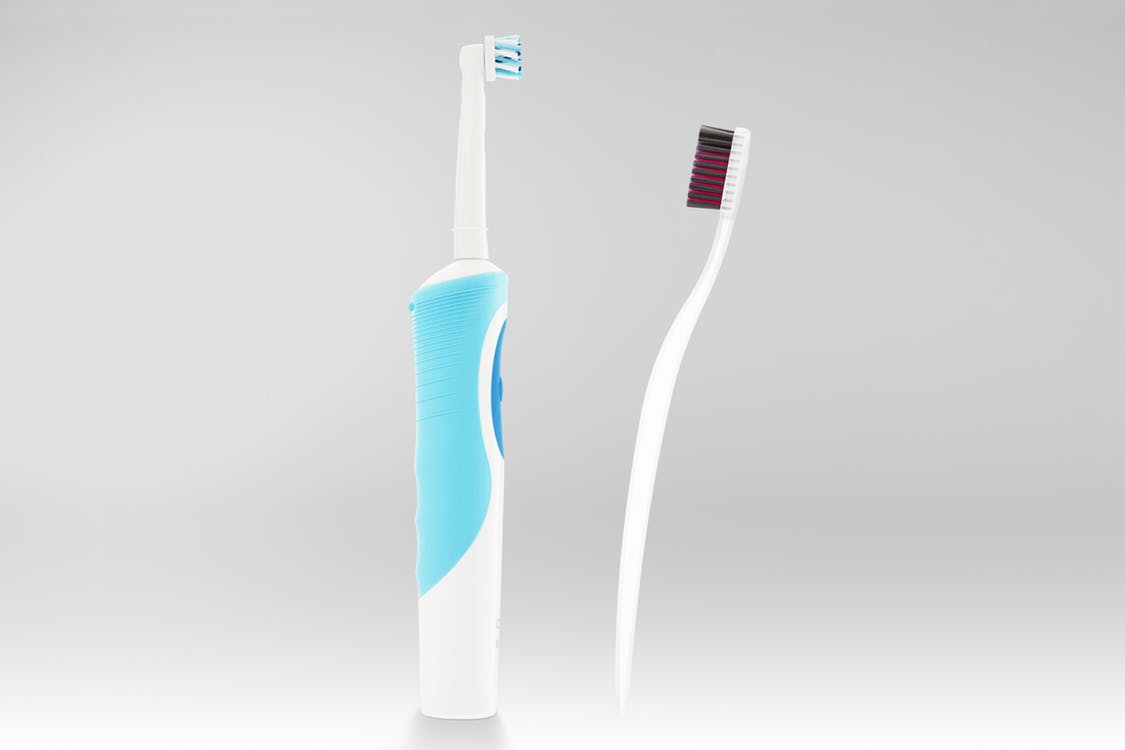The rise of electric toothbrushes has taken the world by storm in the past few years. You see them everywhere – ads, television, stores – and they keep spreading. What are the benefits of this new type of oral technology? Are they really any better than old-school, manual toothbrushes?
Electric Toothbrushes
Invented in the 1950s to help patients with limited motor skills or disabilities, electric toothbrushes struggled to be deemed safe for home use for years. It wasn’t until the 1990s that the sonic pulsing and vibration brushes were perfected. Within the past 20 years, electric toothbrushes have become a huge part of dental life and culture. The debate between manual and electric brushes seems never-ending, with studies and experiments being made to find the best option for everyone.
There are different types of electric toothbrushes now too. Most, if not all, are battery-operated or able to be charged overnight. These brushes have interchangeable heads that allow you to get a different cleaning experience whenever you want. Some are designed to rotate, others pulsate back and forth, some do both!
You might think all of that sounds easy and beneficial, but how safe are these brushes? Putting a mechanical object that moves and spins around in your mouth may seem dangerous, but no adverse effects or problems have been found by the FDA.
How to Use an Electric Toothbrush
Electric toothbrushes are really simple to use, that’s one of the main reasons people are drawn to them. The pulsating or spinning action of the toothbrush head does most of the work for you. All you have to do is move the brush around your teeth to make sure they are all covered.
The recommended time for brushing is two minutes for both manual and electric toothbrushes. Some electric brushes even have a timer on them so you know how long you’ve been brushing and when to stop. This makes you an accountable and efficient brusher.
Electric brushes even have pressure sensors to make sure you aren’t pressing down on your teeth too hard, as that could cause discomfort and pain in your mouth. Brushing too hard over a long period of time can also cause your gums to recede prematurely.
How About Manual Toothbrushes?
Good ol’ manual brushes aren’t out of the game just yet. High-tech sonic toothbrushes may be popular, but some people still want the feeling of brushing their teeth the way they’ve always done it. And that’s OK. Manual toothbrushes are by far a cheaper option than the electronic ones, and as long as you brush your teeth and floss thoroughly, a manual toothbrush will work just fine.
In the many studies that have been published trying to settle this long-standing debate, most of them found there is not a huge advantage of using an electric toothbrush over a manual one. Sure, it may be more convenient and easier to use, but as of now it does not necessarily get your teeth any cleaner than a manual one. Knowing how to use your toothbrush is the key to its success. Whether it’s a manual or an electric toothbrush, just be sure you’re using it correctly and efficiently so your teeth stay perfectly clean.
If you have any other questions or need more information, call us today at (843) 4-BRACES to schedule a free initial exam.



